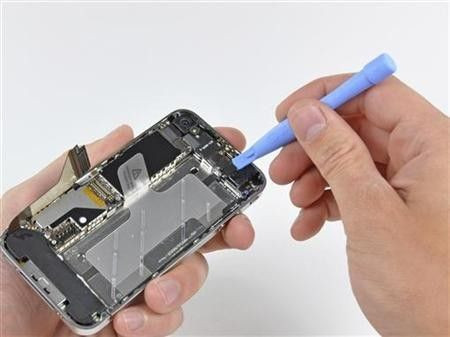The Only Constant in Apple iPhone 5 Saga : Delay, Delay and More Delay

The Apple-Samsung patent lawsuit's biggest beneficiary is Taiwan SemiConductor Manufacturing Company (TSMC), which has snatched the lucrative offer to manufacture Apple's next-generation A6 processor from Samsung's hands.
Reuters reported that TSMC has started trial production of the upcoming processor. However, another rumor based on a report from blog Semiwiki suggests the TSMC manufactured A6 chipset will incorporate 3D IC technology. It reported that TSMC is in production with 3D IC technology and is in a race with Intel to manufacture a 3D IC chip. EETimes reported that TSMC could deliver processors with 3-D interconnet by end of 2011.
The 3D IC technology consists of stacking integrated circuits and connecting them vertically. The technology enables complex integration of other devices like memory, logic, sensor, processor and software.
Semiwiki stated that TSMC's 3D IC technology achieves performance gains of about 30 percent, while consuming 50 percent less power.
So if Apple's A6 chip is due to incorporate the above-stated technology, then the argument underscores a report from Chinese Web site Sohu that says that Apple is having problems placing the A5 chipset in the smaller iPhone 5 chassis.
An A5 processor currently powers Apple's iPad 2 tablet. The A5 chipset in iPhone 5 is set to have been causing overheating problems. In light of this revelation, it seems possible that Apple could be looking to place A6 chips based on 3D IC technology in the next iPhone 5.
This could result in further delay in the release of iPhone 5, as TSMC is said to start production of A6 chips in 2012, according to an earlier report by Ars Technica. However, reports suggest that TSMC is due to deliver 3D IC chips by the end of 2011.
The next generation A6 SoC will be crafted on a 28nm process. The current A5 chip is built on a 45nm process.
However, knowing the way Apple orders its supply chain, it's highly unlikely that it will depend entirely on TSMC for the supply of A6 chips. With Samsung now in its black books, Apple would be looking for another partner which could further delay the iPhone 5 release, which is currently expected to arrive by September.
Currently, Samsung manufactures the A4 and A5 microchips that are fitted in iPhone 4 and iPad 2. In January, it was reported that Samsung had signed an agreement to quadruple production of processors, with the fallout being that Samsung's semiconductor division will be manufacturing more chips for Apple rather than for its own line of Galaxy devices. It was also reported that Samsung was investing $3.6 billion to expand its fabrication plant in Austin, Texas.
It is surmised that the iPhone 5 will feature the A5 chipset, which is manufactured by Samsung. With the relationship with Samsung soured, one wonders if the iPhone 5's release has been delayed as Apple seeks another manufacturer and another chip.
MUST READ: Apple iPhone 5: Top 10 Android 'super' smartphones that can end iPhone's rule
© Copyright IBTimes 2024. All rights reserved.





















